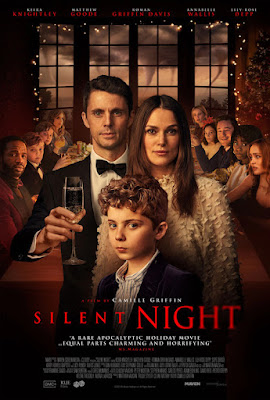In this world, most insurance claims are probably filed under “acts of God,” because there isn’t a category for huge cosmic alien “spikes.” Whenever they appear, they cause a lot of death and destruction, before teleporting, or “jumping” somewhere else on Earth. After 1,500 jumps, give or take, people have gotten used to living with the constant threat of potential annihilation, but Kai and Thalia have yet to move beyond their personal grief. However, the spike literally gets them physically moving when it displaces their treasured belongings from Arizona to Washington State in Matthew Arnold & Freddie Wong’s We’re All Gonna Die, which screens tonight during the 2024 Asian American International Film Festival.
Frankly, nobody really seems to be curious about what the spike is and what it does. Even though its impact is bafflingly random, people just accept it as a plot device, including Thalia and Kai. She was delivering her prize honey bees, who had a hot date pollinizing a farm. He was figuring out where he should go in the mullet-worthy sportscar he inherited from his best friend. They nearly collided. Instead, a freak spike came down, swapping the area with her bee-trailer and his car, with some mountainside land they deduce must be up in Washington.
Since Thalia still has her truck, they eventually hit the road (after some pointless debate) to reclaim what is theirs. Of course, we know it will turn into a therapy session. Ironically, both his pal and her husband and daughter died of tragic but conventional ways unrelated to the spike, which in a way, makes their losses worse.
As you might have figured, Arnold & Wong’s screenplay is really an on-the-road story, spruced-up with science fiction window dressing. The comedy is inconsistent, at best. However, the way it depicts the vibe of life amid a slow apocalypse is surprisingly resonant. In a way, it is reminiscent of Israeli society, which chooses to embrace life, despite the constant threat of death and terrorism.





















